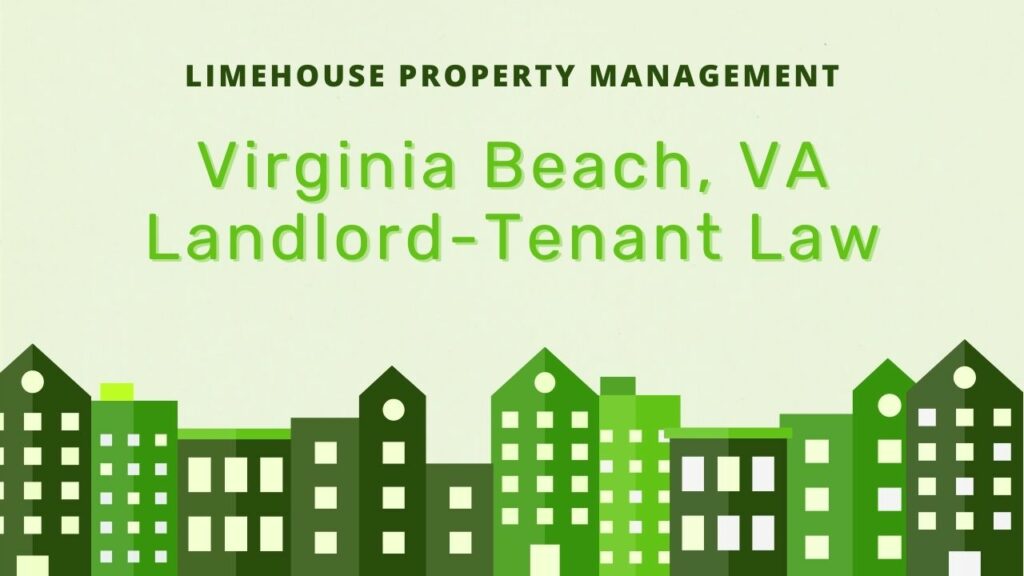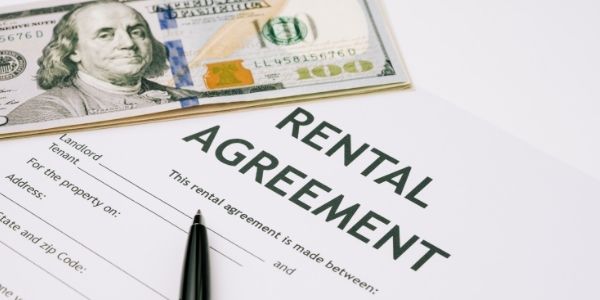Virginia Rental Laws – An Overview of Landlord Tenant Rights in Virginia Beach

Landlords and tenants in Virginia must abide by the Virginia landlord-tenant law. The statewide Virginia rental laws outline the most essential details of this relationship, from security deposits to each party’s rights and responsibilities.
If you’re just getting started as a landlord in Virginia or simply want to learn more, here’s everything you need to know about the Virginia landlord-tenant law.
What are the Required Disclosures in Virginia?
Before signing a lease, a landlord in Virginia has to make certain information known to their tenant. These disclosures are outlined in the Virginia Residential Property Disclosure Act, and they include:
- Mold Presence: If you have a mold issue in your rental property, you must make that information known to your tenant before signing a lease.
- Lead Paint Presence: Exposure to lead can be a health hazard. For this reason, you must let a prospective tenant know if your property has lead paint beforehand.
- Defective Drywall: Also known as ‘Chinese drywall’, this material can emit dangerous levels of sulfur-bearing gases. So, if your property has them, you must let interested applicants know.
- Sale of Property: Are you looking to sell your property soon? If so, you must let your tenant know of your intention to do so.
- Property Changes: If you’re looking to make significant changes or even planning to demolish your unit in the near future, you must let your tenant know of your plans.
- Flood Risk: If your property is located in a dam break inundation zone or any other flood hazard area, you should disclose this.
- Nearby Sex Offenders: If anyone living in the surrounding area is on the sex offender registry, you must make this known.
This signed disclosure doesn’t actually have to include all the information above – at minimum, you need to state that you ‘make no representations about’ each item.
This means the tenant will be responsible for their own due diligence and research.
Virginia Tenant Rights & Responsibilities

The Virginia landlord-tenant law outlines renters rights. Some Virginia renters rights include the right to:
- Live in a unit that meets all the applicable health, safety and building codes.
- Live in peace and quiet without unreasonable disruptions from neighbors or the landlord.
- Continue living in their rented unit until the lease ends, or until the landlord has followed the due eviction process.
- Be given proper notice if the landlord wants to make changes to the terms of the lease agreement.
- Be treated respectfully and fairly as per the Virginia Fair Housing Act.
- Have needed repairs done within a reasonable amount of time.
- Have the right to action if the landlord fails in their responsibilities.
- Be served proper notice when the landlord needs to enter their premises.
When it comes to responsibilities, Virginia tenants are responsible for:
- Abiding by all terms of the lease agreement, such as paying rent on time.
- Taking care of their rented premises in accordance with the lease agreement.
- Notifying the landlord of any maintenance issues that crop up.
- Notifying the landlord if they plan to leave for an extended period of time.
- Serve the landlord proper notice when looking to move out.
Landlord Responsibilities and Rights in Virginia
Landlords, too, have certain rights under the Virginia residential landlord and tenant act. They have a right to:
- Enter their rented property to carry out needed repairs or to show the unit to prospective tenants, lenders or buyers.
- Be served proper notice by a tenant wishing to move out.
- Evict a tenant for violating the terms of the agreement, such as failure to pay rent on time.
- Make changes to the lease agreement as long as they notify the tenant.
Here are some of the responsibilities Virginia landlords have:
- Abiding by the terms of the lease or rental agreement.
- Following the proper eviction procedure as outlined in the Virginia landlord-tenant law.
- Taking care of requested or needed repairs within a reasonable amount of time.
- Ensuring the tenant can enjoy the unit in peace and quiet.
- Providing the tenant with proper notice when looking to make changes to the agreement.
- Meeting all basic habitable standards.
- Providing a notice of at least 24 hours prior to entering a tenant’s unit.
Basic Overview of the Virginia Landlord Tenant Act

1. Landlord Entry
Can a landlord enter without permission in Virginia?
As mentioned earlier, landlords have a right to enter their tenants’ units under certain situations. Examples of such situations include:
- To make required or requested repairs.
- Under order of the court.
- To show the unit to prospective tenants, buyers or lenders.
- To inspect the unit for damage or compliance to the terms of the lease.
- In an emergency.
- If the landlord has sufficient reason to believe the tenant has abandoned their unit.
Before entering, though, Virginia landlords must first notify their tenants. Specifically, you must provide your tenant with a notice of at least 24 hours prior to the entry. (Va. Code Ann. §§ 55.1-1229).
2. Fair Housing Law
Discrimination against tenants on the basis of their protected characteristics is illegal not only in Virginia but the entire country, as well.
The protected characteristics at the federal level include race, color, disability, religion, national origin, and familial status.
Virginia tenant laws also provide additional protection to people of certain classes, such as on the basis of marital status, age, veteran status, and gender identity.
3. Warranty of Habitability
Landlords have a duty to provide a property that meets all the basic living standards. Among other things, that means providing a property that is structurally sound, clean, sanitary, and has adequate water, heat, and electricity.

4. Small Claims Courts
Virginia, just like other states, has small claims courts. The maximum amount one can sue in a Virginia small claims court is $5,000.
5. Security Deposits
Although not required by law, most landlords require their tenants to pay a security deposit prior to moving in. If you require this, you must then abide by certain rules; for example, collecting an amount not exceeding the rent of two months.
Disclaimer: This information isn’t a substitute for professional legal advice. Laws change often and this post might not be updated at the time you read it. For expert help, kindly contact a qualified attorney or an experienced property management company.
